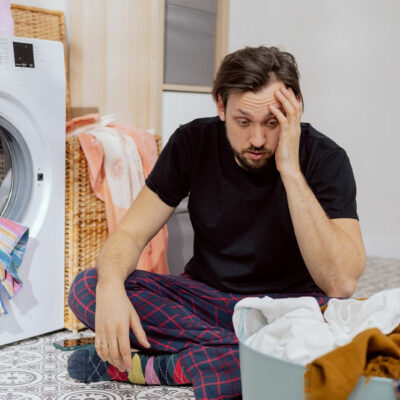Top Phone Buying Errors and Usage Habits to Avoid

Buying a smartphone is a big decision, as top-notch phones cost hundreds of dollars. Additionally, there are so many factors like the brand, model, key features, and ultimate cost of owning the phone that you need to consider before making a decision. You must also avoid the following mistakes when buying a phone, as a hasty decision can result in getting a product that adds little or no value or utility.
Buying mistakes to avoid
Not knowing your exact needs
Smartphones come with a ton of features, more than what you probably end up utilizing. Some phones boast a fast processor for gaming and others come with a better camera setup. Some phones are just designed for pure multimedia purposes with 4K HDR support and Dolby Atmos Surround sound. The bottom line is you need to understand and list your daily requirement to buy a phone with the right hardware and software specifications that can be useful.
Choosing the wrong carrier and plans
Buying an unsuitable phone is something you would want to avoid, but what is arguably worse is paying hundreds of dollars to a carrier network and being bound to an unfavorable contract. It is cheaper to get a bundled plan where four to six users can access unlimited talk time, texts, and data on the same network. Billing and managing the plan also becomes easier this way. For example, US Cellular wireless unlimited phone plans start at $55/month and can go over $70/month if you get premium features like priority data and full HD streaming support. It is better to buy a phone free from carrier contracts so that you can switch to carriers like US Cellular that offer value-for-money plans.
Buying the latest model
Just because the product is new doesn’t mean it will be the best pick for you. Major brands like Apple, Samsung, and OnePlus roll out new versions of their existing smartphones each year. But not all phones come with excellent hardware and software upgrades. For example, the iPhone 13 and iPhone 14 are nearly identical, with similar CPU, GPU, and processor specifications. The hardware and software differences are subtle and hardly worth the upgrade unless you are particular about getting the latest variant. You can buy the iPhone 13 and get more or less the same features without a few minor upgrades for half the cost of a brand-new iPhone 14.
Not doing your research
You have unlimited access to product reviews on YouTube, so buying tech is not nearly as complicated as it once used to be. But you should not solely rely on a reviewer’s verdict, as many videos may be sponsored. Brands can pay tech reviewers a lot of money to hype the positive aspects of the product as part of something called influencer marketing. So, do your research to learn about the specifications and see if these are the key features you seek in your new phone. You must compare the phone specifications and check out user reviews, where you can often find honest, unbiased opinions.
Overlooking the cost of ownership
It is never as simple as just buying a product. The real ownership cost comes with monthly spending on data plans, phone accessories, and phone insurance. Many brands that launch lucrative financing schemes with partner networks also have expensive activation and roaming costs. Also, if you don’t pay for the full warranty coverage, the phone will not be insured for repairs, theft, and damages. You must always assess the total cost of ownership before buying a smartphone.
While smartphones are indispensable gadgets today, careful usage is crucial for avoiding health risks and heavy dependence on phones.
Smartphone habits to break
Phone overuse and addiction are common concerns today. So here are some critical smartphone habits to avoid:
Using the phone after waking up and before bed
The first thing that you probably do after waking up is reach for your phone to check messages and other notifications. But you may not realize how unproductive this habit is as you can end up spending hours on the phone before eventually getting out of bed. Similarly, using your phone right up until bedtime keeps the mind active with all the information overload and overexposure to audio-visual content. This can make it difficult to get a good night’s sleep.
Excessive social media usage
Social media has been cited as one of the main triggers of depression among teenagers and adults. All the information overload and constant need for validation on apps like Facebook, Instagram, or Twitter exert immense mental pressure. The dependence can also worsen over time. So, you may have to learn to limit, if not completely eliminate, the dependence on social media.
Heavily depending on smartphones
Your smartphone can schedule tasks, save reminders, take notes, and do many other things. You can get productivity apps that organize everything from daily to-do lists to your finances, but such apps also increase your dependency on phones. Overusing phones can increase the risk of digital amnesia—forgetting to collect, store, and process information simply because you trust a device to do so.
Using the phone for entertainment
Even mid-range smartphones come with an impressive display that supports 4K HDR streaming and Dolby Atmos for superior audio quality. So, you may want to binge your favorite shows and movies on the phone. But this habit will only make you use the phone more instead of watching shows on a TV, laptop, or tablet.
Constantly carrying the phone
Always having the phone in your pocket, beside the bed, or carrying it around the house can make you feel compelled to check notifications even when not required. So, you must set the phone aside and find other activities to reduce your screen time.
















